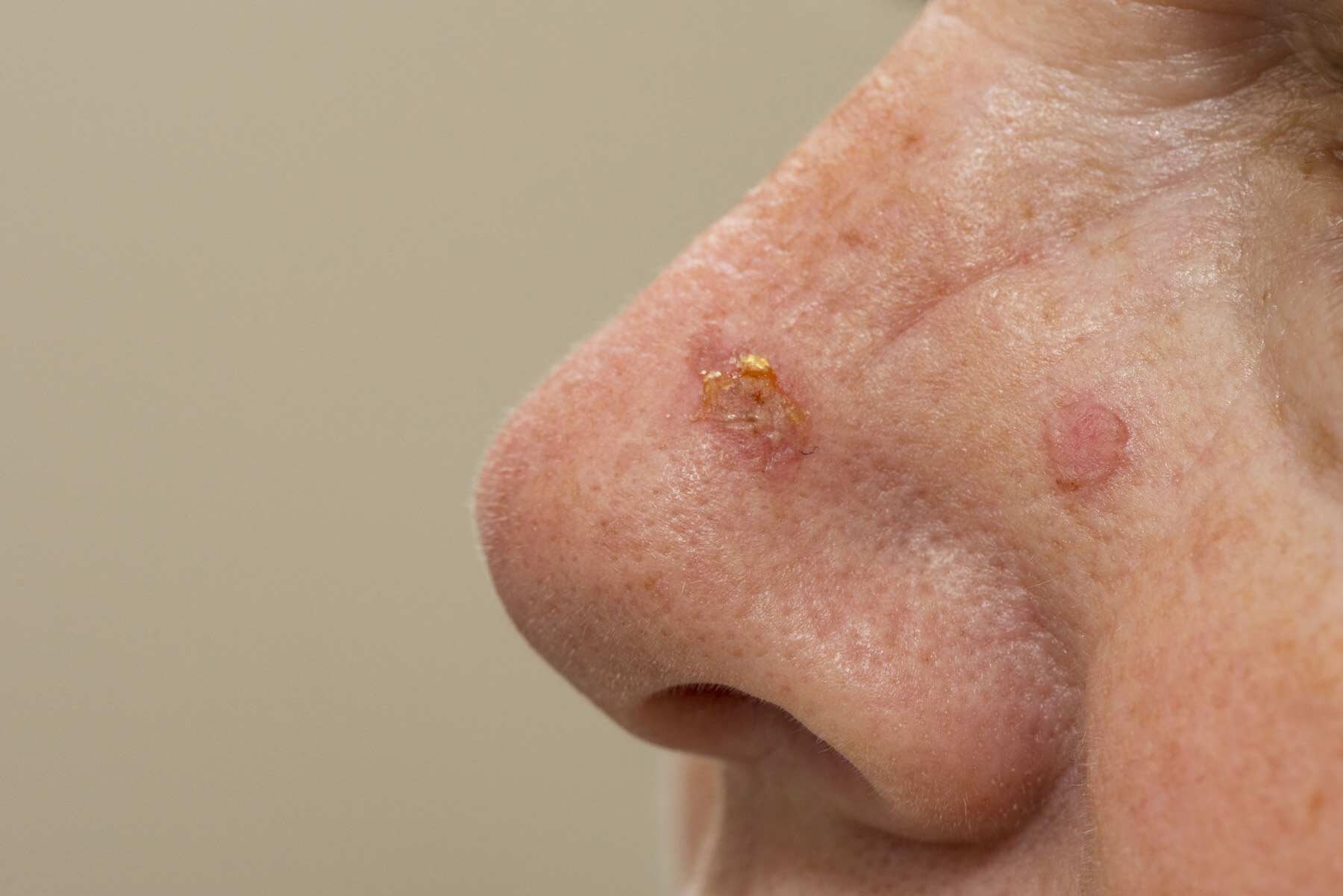
Actinic Keratosis
pre-cancerous lesions
Actinic keratosis (AK) is a common skin condition that is characterized by the development of rough, scaly patches on the skin. It is caused by prolonged exposure to UV radiation, and it is most commonly found on areas of the skin that are exposed to the sun, such as the face, ears, neck, and hands. AK is not cancerous, but it can progress to squamous cell carcinoma (SCC), a type of skin cancer, if left untreated.
AK is more common in people with fair skin, light hair, and blue or green eyes, and it is also more common in people who have a history of sunburns or who have a weakened immune system. It is more likely to occur in people over the age of 50, but it can occur at any age.
Symptoms of AK may include rough, scaly patches on the skin that are pink, red, or skin-colored, as well as crusty or dry patches on the skin. The patches may be itchy or painful, and they may bleed or crust over. In some cases, AK may cause no symptoms at all.
Treatment for AK typically involves the removal of the abnormal skin cells to prevent the development of SCC. This may be done through cryotherapy (freezing the abnormal cells with liquid nitrogen), topical treatment with creams or ointments, or surgery. The specific treatment recommended will depend on the size, location, and severity of the AK.
In addition to treatment, there are several steps you can take to help reduce your risk of developing AK:
Avoid prolonged sun exposure, especially between the hours of 10 a.m. and 4 p.m. when the sun is strongest
Wear protective clothing, such as a wide-brimmed hat and sunglasses, when you are outdoors
Use a broad-spectrum sunscreen with an SPF of 30 or higher on a daily basis, even on cloudy days
Avoid using tanning beds
Perform regular self-exams to check for any unusual or suspicious spots on your skin
By following these precautions and seeking treatment as needed, you can help to manage AK and reduce your risk of developing this condition or a more serious form of skin cancer. If you are concerned about AK or have any other changes in your skin, it is important to see your dermatology provider for further evaluation.

